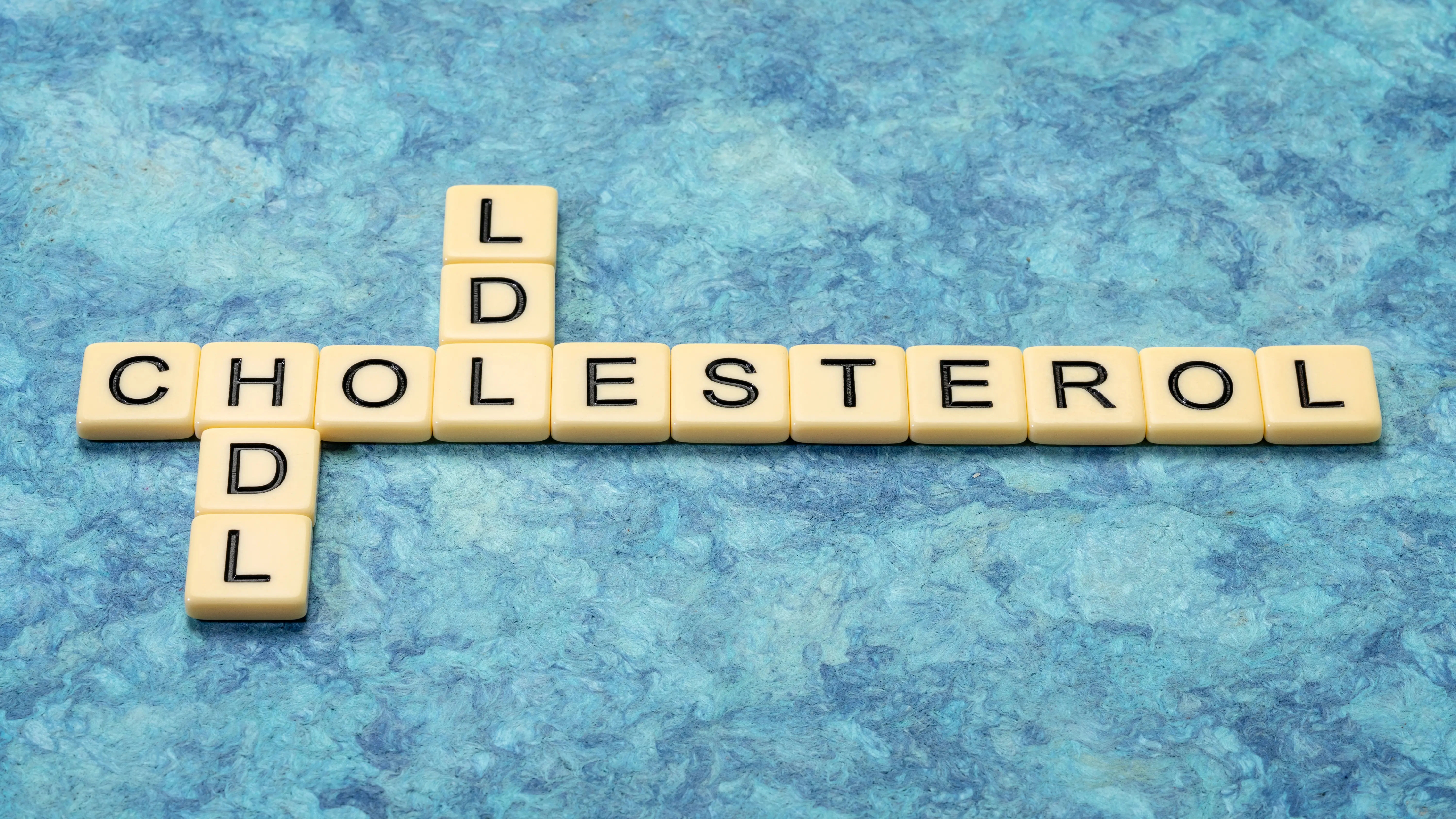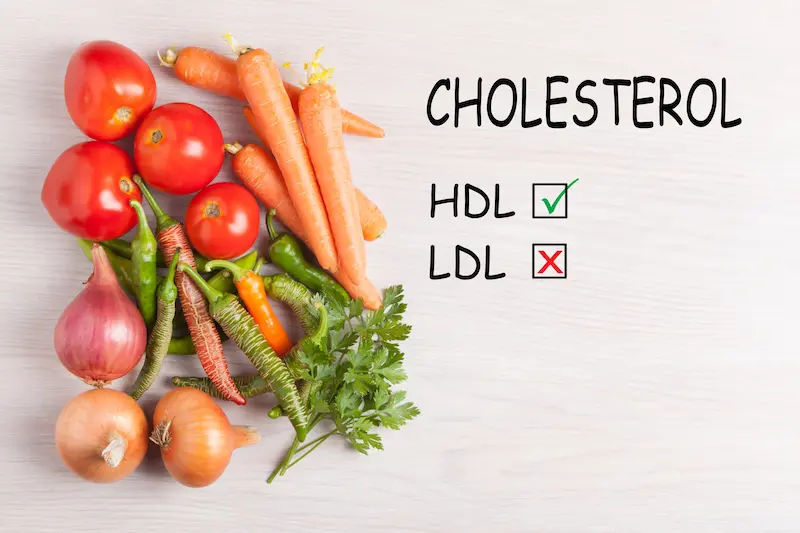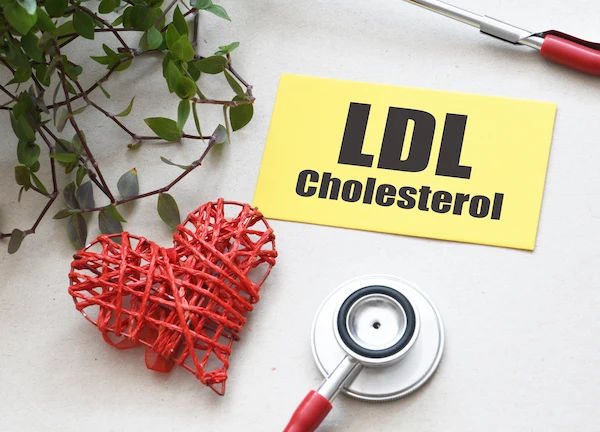Good Fats vs. Bad Fats: Your Ultimate Guide to a Healthy Diet
Know about good fat versus bad fat, Why is it required, good and bad fats in detail, reading nutrition label on foods and more.

Written by Dr. Shaik Abdul Kalam
Reviewed by Dr. Rohinipriyanka Pondugula MBBS
Last updated on 13th Jan, 2026

Introduction
For decades, fat was public enemy number one in the world of nutrition. We were told to avoid it at all costs to stay slim and healthy. But science has since revealed a far more nuanced and fascinating story. The truth is, fat is an essential macronutrient, critical for your body to function optimally. However, not all fats are created equal. The key to unlocking its benefits lies in understanding the crucial difference between good and bad fats. This comprehensive guide will cut through the confusion, empowering you to make informed dietary choices. We'll explore the science behind saturated, unsaturated, and trans fats, provide clear lists of what to eat and what to avoid, and offer practical tips for transforming your health by simply choosing the right fats.
Why Your Body Actually Needs Fat
Before we demonise any fats, it's vital to understand why we need dietary fat in the first place. Far from being just a calorie source, fat plays several indispensable roles in keeping you healthy.
Consult Top Specialists for Personalised Tips
Energy Storage and Provision
Fats are the body's most concentrated source of energy, providing 9 calories per gram—more than double that of carbohydrates or protein. This stored energy (in the form of triglycerides) acts as a reserve fuel tank, helping you power through your day and supporting endurance during physical activity.
Vitamin Absorption and Hormone Production
Certain crucial vitamins—A, D, E, and K—are fat-soluble. This means your body needs dietary fat to absorb them properly. Without adequate fat intake, you could become deficient in these vitamins, leading to a host of health issues. Furthermore, fat is a fundamental building block for producing hormones, including sex hormones like estrogen and testosterone, which regulate countless bodily processes.
Brain Health and Cell Function
Did you know your brain is nearly 60% fat? Dietary fats, particularly omega-3s, are critical for brain development, cognitive function, and memory. They also form the protective sheath (myelin) that surrounds nerve cells, ensuring efficient communication throughout your nervous system. Every single cell in your body has a membrane made of fats, which controls what enters and exits the cell, making it essential for overall cellular health.
The "Bad Fats": Understanding Saturated and Trans Fats
These are the fats you genuinely need to limit or avoid. They are most commonly associated with increasing the risk of chronic diseases.
What Are Saturated Fats?
Saturated fats are typically solid at room temperature. They are "saturated" with hydrogen atoms, which gives them a stable chemical structure. The primary health concern with saturated fats is their tendency to raise levels of LDL (low-density lipoprotein) cholesterol, often called the "bad" cholesterol. High LDL cholesterol can lead to plaque buildup in arteries (atherosclerosis), increasing the risk of heart disease and stroke.
Common Sources of Saturated Fats
Red meat (beef, lamb, pork)
Processed meats (sausages, hot dogs, bacon)
Full-fat dairy products (butter, cream, cheese, whole milk)
Lard and tallow
Tropical oils (coconut oil, palm oil)
Health Risks of Excessive Saturated Fat
Consuming high amounts of saturated fat is consistently linked to elevated LDL cholesterol levels and a higher incidence of cardiovascular disease. The American Heart Association recommends limiting saturated fat to no more than 5-6% of your total daily calories.
The Worst Offender: Trans Fats
If there's one type of fat to avoid completely, it's artificial trans fats. These are created through an industrial process called hydrogenation, where hydrogen is added to liquid vegetable oils to make them solid and shelf-stable.
How Trans Fats Are Created (Hydrogenation)
This process turns healthy oils into unhealthy solids, preventing them from going rancid. This made them incredibly popular in processed foods for decades. On ingredient labels, watch for the words "partially hydrogenated oils"—this is code for trans fats.
Why Trans Fats Are So Harmful to Health
Trans fats are a double whammy for your heart. They not only raise your LDL ("bad") cholesterol but also lower your HDL (high-density lipoprotein), or "good," cholesterol. This combination significantly increases your risk of heart disease, stroke, and type 2 diabetes. They also promote inflammation and insulin resistance. Due to these severe health risks, many countries have banned them, but they can still lurk in some products.
The "Good Fats": Embracing Unsaturated Fats
Unsaturated fats are the champions of heart health. They are typically liquid at room temperature and are divided into two main categories.
Monounsaturated Fats (MUFAs): The Heart-Healthy Heroes
MUFAs are known for their beneficial effects on heart health. Replacing saturated fats with monounsaturated fats can help reduce LDL cholesterol levels while maintaining HDL cholesterol.
Top Food Sources of Monounsaturated Fats
Olive oil (a cornerstone of the Mediterranean diet)
Avocados and avocado oil
Nuts (almonds, peanuts, cashews, macadamia nuts)
Seeds (pumpkin, sesame)
Peanut butter (natural, without added sugars/hydrogenated oils)
Benefits of Monounsaturated Fats
Diets rich in MUFAs are associated with a reduced risk of heart disease, improved insulin sensitivity, and better blood sugar control, making them excellent for overall metabolic health.
Polyunsaturated Fats (PUFAs): Essential for Health
These fats are called "essential" because your body cannot make them; they must be obtained from food. The two main types are Omega-3 and Omega-6 fatty acids.
Omega-3 Fatty Acids: The Anti-Inflammatory Powerhouse
Omega-3s are renowned for their powerful anti-inflammatory properties and are crucial for brain and eye development.
Sources: Fatty fish (salmon, mackerel, sardines, herring), flaxseeds, chia seeds, walnuts, and algae oil.
Benefits: They lower triglycerides, reduce the risk of arrhythmias, slow plaque buildup in arteries, and can help decrease inflammation throughout the body.
Omega-6 Fatty Acids: Understanding the Balance
Omega-6s are also essential but are already abundant in the modern diet. The key is balance. While needed for normal growth and development, excessive omega-6 intake without sufficient omega-3s can promote inflammation.
Sources: Vegetable oils (soybean, corn, sunflower), nuts, and seeds.
Goal: Focus on achieving a better balance by increasing omega-3 intake rather than drastically reducing omega-6s.
How to Read Nutrition Labels for Fats
Navigating the supermarket aisles is easier when you know what to look for:
1. Check the Saturated Fat Line: Aim for a low % Daily Value (DV).
2. Scour the Ingredients List: This is non-negotiable. Avoid any product that lists "partially hydrogenated oil." Even if the label says "0g trans fat," if this ingredient is present, it contains trace amounts.
3. Look for the Good Stuff: Products containing oils like olive, avocado, or sunflower are better choices.
Practical Tips for Swapping Bad Fats for Good Fats
Cook with Oils: Replace butter, lard, and coconut oil with olive oil or avocado oil for sautéing and roasting.
Choose Lean Proteins: Opt for skinless poultry, fish, and lean cuts of meat. Incorporate plant-based proteins like lentils and beans.
Snack Smart: Swap chips and crackers for a handful of nuts, seeds, or an avocado.
Dress Your Own Salad: Make simple vinaigrettes with olive oil instead of using store-bought creamy dressings.
Fish Twice a Week: Aim to eat fatty fish at least two times per week to boost your omega-3 intake. If this is a challenge, consulting a doctor or nutritionist online with Apollo24|7 can help you determine if a supplement is right for you.
Upgrade Your Dairy: Choose low-fat or fat-free milk and yoghurt. Use avocado as a spread instead of butter on toast.
Conclusion
Understanding the difference between good and bad fats is one of the most powerful steps you can take for your long-term health. It’s not about adopting a fat-free diet, but rather about making smart swaps choosing avocados over butter, olive oil over lard, and salmon over sausage. By prioritising unsaturated fats and severely limiting trans and saturated fats, you actively support your heart health, brain function, and overall well-being. This isn't a diet of deprivation; it's a lifestyle of delicious and nutritious choices. Start with one swap today, and build from there. Your body will thank you for years to come.
Consult Top Specialists
Consult Top Specialists for Personalised Tips

Dr. Dhanraj K
General Physician/ Internal Medicine Specialist
25 Years • MBBS, MD Internal Medicine - Osmania Medical College, Hyderabad
Hyderabad
Apollo Hospitals Jubilee Hills, Hyderabad
(425+ Patients)

Dr. Harshendra Jaiswal
General Physician/ Internal Medicine Specialist
12 Years • MBBS , MD (General medicine)
Kolkata
108 DHANA DHANVANTARI Clinic, Kolkata
(25+ Patients)

Dr. Vivek D
General Physician
4 Years • MBBS
Bengaluru
PRESTIGE SHANTHINIKETAN - SOCIETY CLINIC, Bengaluru

Dr Syed Mateen Pasha
General Physician
2 Years • MBBS
Bengaluru
PRESTIGE SHANTHINIKETAN - SOCIETY CLINIC, Bengaluru
Dr P Sai Avinash
General Physician/ Internal Medicine Specialist
7 Years • MBBS
Bengaluru
Apollo Medical Center, Marathahalli, Bengaluru
Consult Top Specialists

Dr. Dhanraj K
General Physician/ Internal Medicine Specialist
25 Years • MBBS, MD Internal Medicine - Osmania Medical College, Hyderabad
Hyderabad
Apollo Hospitals Jubilee Hills, Hyderabad
(425+ Patients)

Dr. Harshendra Jaiswal
General Physician/ Internal Medicine Specialist
12 Years • MBBS , MD (General medicine)
Kolkata
108 DHANA DHANVANTARI Clinic, Kolkata
(25+ Patients)

Dr. Vivek D
General Physician
4 Years • MBBS
Bengaluru
PRESTIGE SHANTHINIKETAN - SOCIETY CLINIC, Bengaluru

Dr Syed Mateen Pasha
General Physician
2 Years • MBBS
Bengaluru
PRESTIGE SHANTHINIKETAN - SOCIETY CLINIC, Bengaluru
Dr P Sai Avinash
General Physician/ Internal Medicine Specialist
7 Years • MBBS
Bengaluru
Apollo Medical Center, Marathahalli, Bengaluru
More articles from Cholesterol
Frequently Asked Questions
Is coconut oil a good fat or a bad fat?
Coconut oil is high in saturated fat (around 90%), which traditionally categorises it as a 'bad' fat. However, some studies suggest its specific type of saturated fat (MCTs) may affect the body differently. Until more research is conclusive, it's best to use coconut oil in moderation, similar to other saturated fats, and prioritise unsaturated oils like olive oil for daily use.
How much fat should I eat per day?
The Dietary Guidelines recommend that fats make up 20-35% of your total daily calories. For a 2,000-calorie diet, this is about 44 to 78 grams. The majority of this should come from unsaturated sources.
Are all plant-based fats healthy?
Most are, but there are exceptions. Plant-based sources like avocados, nuts, and olive oil are excellent. However, highly processed plant-based foods can still contain unhealthy fats like palm oil or partially hydrogenated oils. Always check the label.
Can eating good fats help me lose weight?
Yes, when consumed as part of a balanced diet. Healthy fats are very satiating, meaning they help you feel full and satisfied longer, which can prevent overeating and snacking on unhealthy foods.
What are the best cooking oils for high heat?
Avocado oil, refined olive oil (not extra virgin), and sunflower oil have high smoke points, making them stable and safe for high-heat cooking methods like searing and frying.



